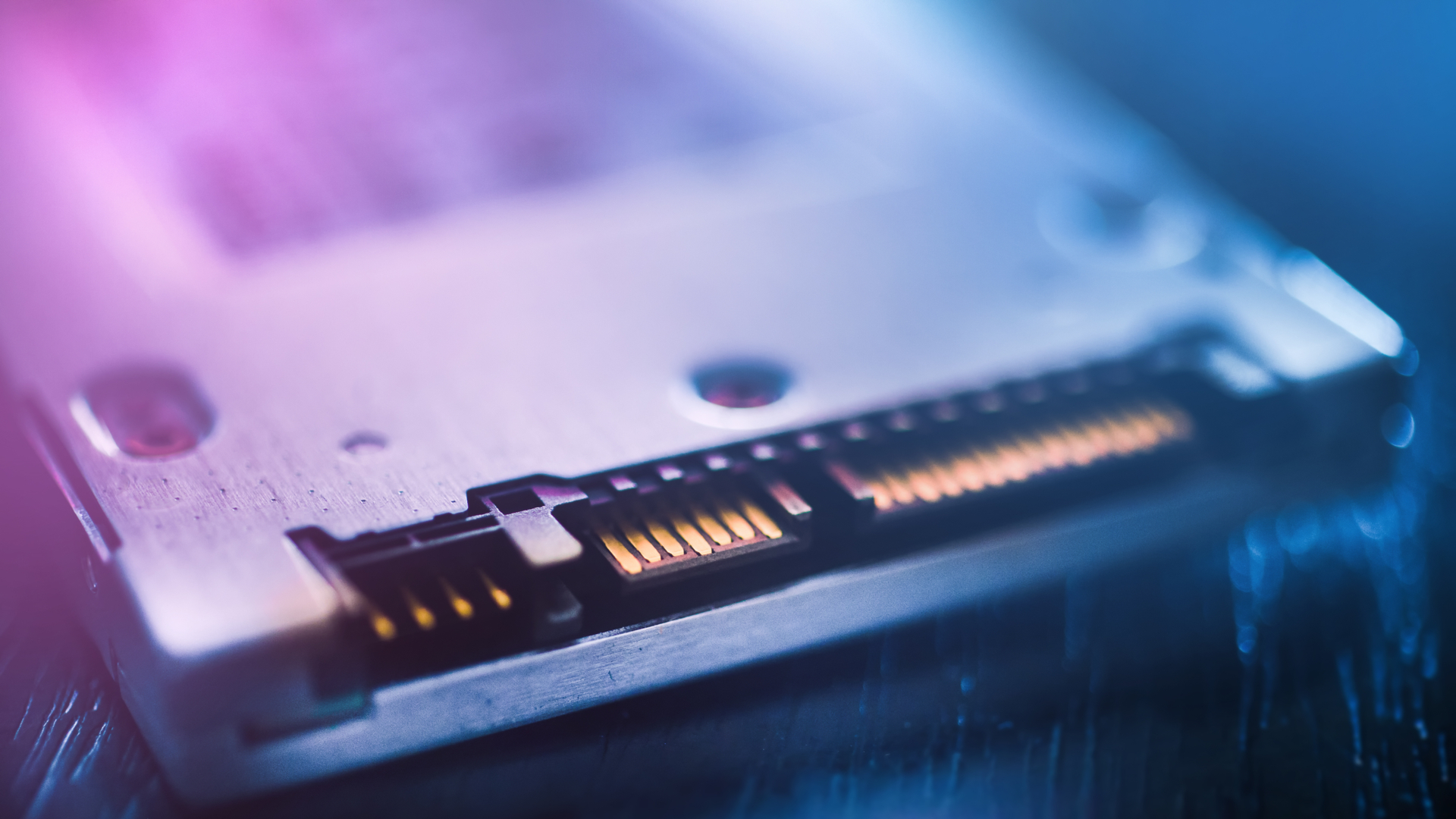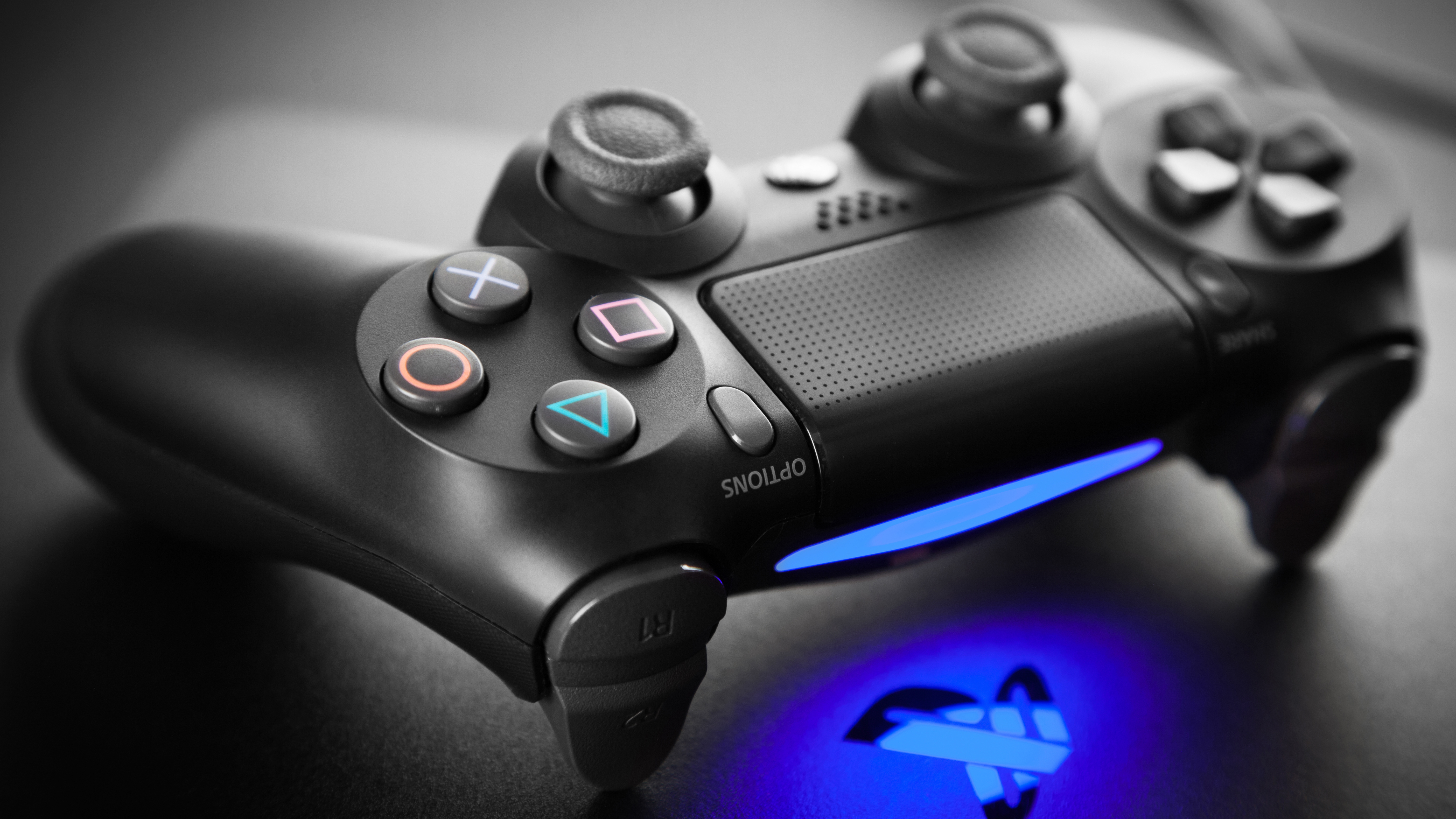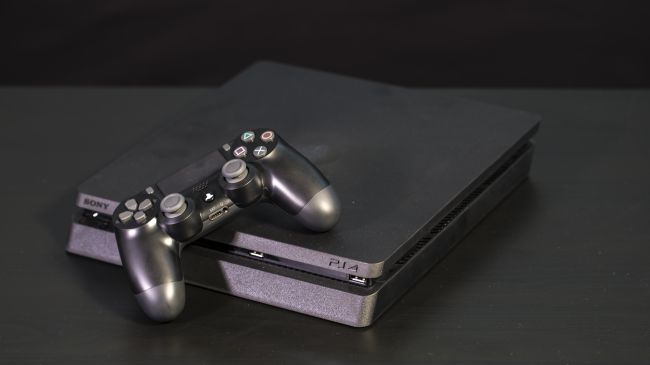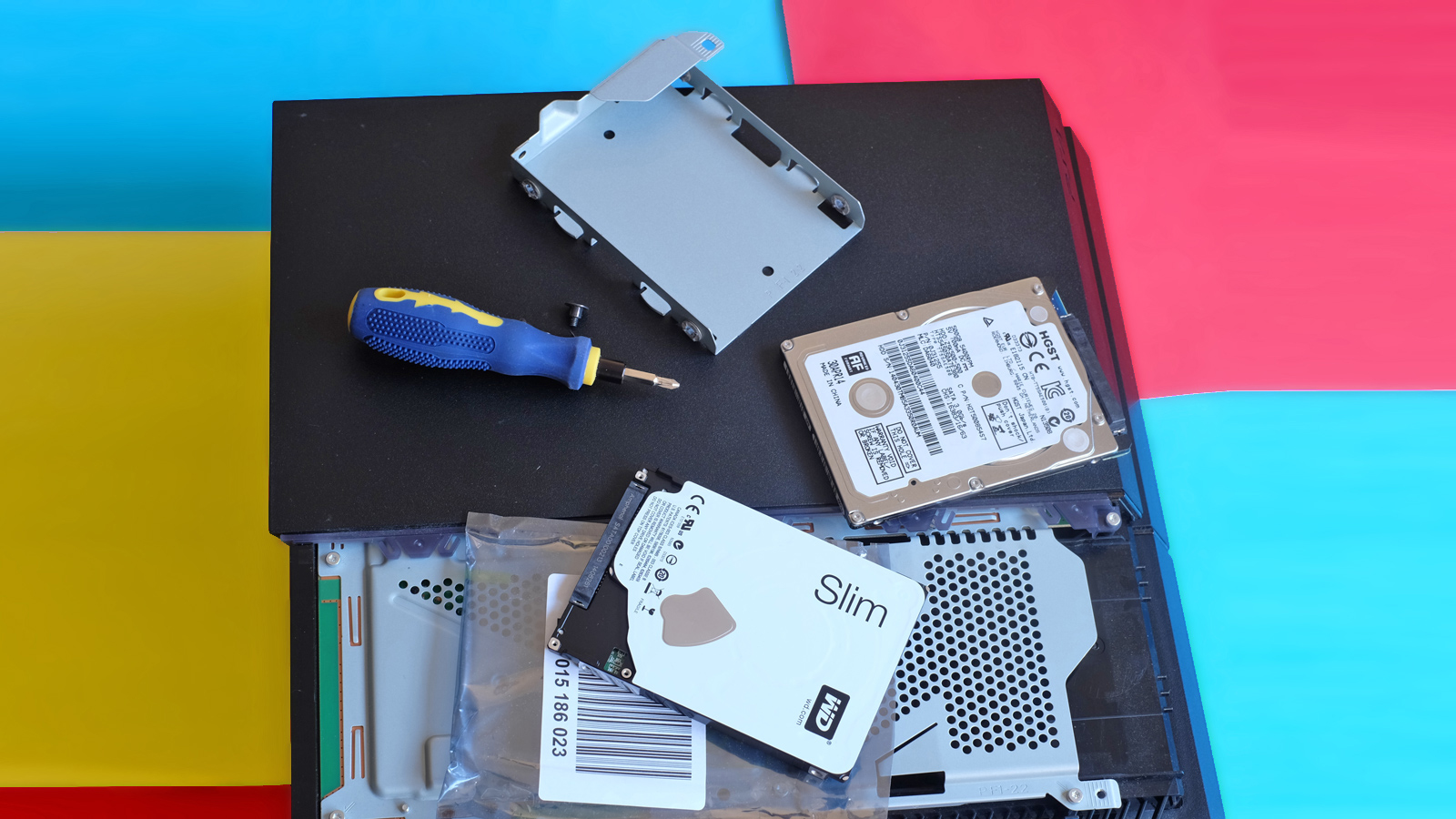Should I buy an SSD for my PS4 or PS4 Pro?
The pros and cons of fitting your PS4 with an internal SSD

Do you need an SSD for your PS4 or PS4 Pro? Probably. SSD, which stands for solid-state storage, is a fast drive that’s almost always used in gaming PCs, and they’re also deployed in the latest next-gen consoles, including the PS5.
But the PS4 and PS4 Pro weren’t so lucky. These two older consoles from Sony rely on hard disks instead of SSDs. But there’s a difference between hard disks and SSD drives. These older drives use sluggish 5,400rpm rotation systems, while SSDs use quicker and more reliable flash memory.
The good news is, you can upgrade your PS4 or PS4 Pro with an internal SSD, which gives your older console a big boost in power and performance – along with other advantages. But, as with any technological changes, there are also disadvantages to consider, too. The main one being that you need to decide which one is right for you before you decide to upgrade.
- PS5 vs PS4 Pro: should you upgrade?
- Best PS4 accessories: all the extras you need to own
Pros

Speed
A huge increase in performance is what the SSD offers when compared to conventional hard disks. Solid-state drives use flash memory chips to store data, while hard disks rely on platters. Flash memory is fast because data is read and written in the time it takes for electrical signals to be sent around the chips – while hard disks have to wait for platters to spin, which is far slower.
The numbers don’t lie. The PS4 and PS4 Pro hard drives deliver read and write speeds that hover around 100MB/s at best, while many of the affordable, SATA-based SSDs that can be used inside the consoles offer maximum speeds above 550MB/s. The PS4 and PS4 Pro have maximum theoretical bandwidth figures of 300MB/s and 600MB/s respectively, so there’s clearly room to work when it comes to storage space.
An SSD will improve your system’s boot and game loading times, and the console’s menus will be smoother. You’ll get improvements in-game, with less pop-up and faster texture loading – and you may even see framerate improvements because games aren’t stalling due to sluggish loading.
Capacity
It used to be the case that SSDs were fast but tiny – happily, times have changed. Years ago you’d have to pay through the nose just to get a 256GB SSD, but now it’s easy to find SSDs with 1TB and 2TB capacities or higher. Those capacities match many of the 2.5in hard disk options currently available.
With games getting bigger, having more space is important, and larger capacities compare well to the PS4 and PS4 Pro’s default storage. The original console is sold with a 500GB drive and the Pro has a 1TB hard disk – its 2TB variant was only a special edition. Realistically, most consoles will still be using a 500GB or 1TB hard disk, so fitting a decent SSD will deliver a speed boost and a capacity improvement in most machines. Even if you choose an SSD that’s the same size as your console’s hard disk, you’re still going to get a solid speed boost.
Reliability
Because SSDs use flash storage, they have no moving parts – and so there’s less to go wrong when compared to hard disks, which have rotating platters and moving arms. It’s unlikely that either an SSD or a hard disk will fail, but an SSD will have better reliability for a longer period. And, as a bonus, SSDs are silent, while hard disks make occasional clicking and spinning noises.
Future-proofing
The PS4 and PS4 Pro use SATA II and SATA III storage connections, which are not particularly modern – but using an SSD will give you more future options than the console’s ageing hard disks. Once you’ve retired your PS4, your SSD will be fast enough for use inside a desktop PC or a laptop, or you could buy a cheap caddy and use it as external storage with your computer or your PS5. An SSD may be initially expensive, but there’s more headroom for future use.
Cons

Price
SSDs have improved in price and capacity, and the PS4 and PS4 Pro’s ageing storage infrastructure means you don’t have to buy a newer, pricier drive to give your console a boost – but there’s no doubt that they can still be expensive.
A decent, mainstream 1TB SATA SSD costs between $100 and $140 and doubling the capacity increases those prices to $200 and $300. If you want a mammoth 4TB or 8TB drive you’ll be paying at least $500.
These prices don’t compare favorably to traditional 2.5in hard disks: if you want a 1TB or 2TB drive, expect to pay under $50 and $100. A 4TB hard disk is only around $120. Hard disks and SSDs both have the space to handle a solid library of games, but hard disks offer better value when it comes to pure size.
If you’ve got a spare SSD lying around, that’s obviously a huge money saver – but this won’t apply to most people.
The consoles themselves
Both the PS4 and PS4 Pro will benefit from an SSD upgrade, but internal differences mean that the PS4 Pro has the most to gain.
The PS4 Pro has a better processor and a newer, faster SATA III storage interface that has a theoretical peak bandwidth of 600MB/s. The original PS4 has a slower processor and its SATA II connection tops out at 300MB/s. The PS4 Pro’s peak speed matches the pace on offer by the best 2.5in SSDs, so they’re a good match – while the original PS4’s connection will bottleneck most of the SSDs you can buy these days.
Make no mistake – you’ll get a decent performance boost by using an SSD inside both the PS4 and the PS4 Pro. It’s just that the difference will be more obvious on the PS4 Pro, and only that console will properly utilize the speed provided by a new SSD.
Be realistic
Slotting an SSD inside your PS4 or PS4 Pro will deliver a performance boost, but it’s worth tempering your expectations. While adding an SSD will improve your console by a solid amount, it’s not going to make your PS4 like a PS5 or a high-end gaming PC in terms of responsiveness or loading times. It’s an evolution, not a revolution.
The future
The PS5 and Xbox Series X are coming soon, and both will include SSDs. With new consoles on the horizon, it makes upgrading the PS4 look like a trickier proposition – it’s arguably better value to save money for a new console. Indeed, it’s only worth spending money to upgrade your PS4 or PS4 Pro if you’ve got a big library of games that you’re still going to play, and if you’re not going to be buying a new console close to launch.
It can be scary
Fiddling around with electronics can be daunting, especially if you’ve not done it before – even though Sony officially supports upgrading your console’s storage. And, aside from that, it can be time-consuming, because you’ve got to back up your data, remove the old drive, install the new product, and restore your operating system and data. It’s totally understandable if you don’t want to delve into your precious PS4, and Sony’s consoles also support external, USB-based storage, which is a far simpler method of adding capacity to your device.
Verdict

Upgrading your PS4 or PS4 Pro with an SSD is a sure-fire way to give your console a performance boost. It'll boost faster, load games more quickly, and eliminate texture-loading issues in many games. SSDs are more reliable than hard disks, they’re more future-proofed, and they’re available with larger capacities and lower prices than ever.
But there are cons. They’re still expensive when compared to hard disks, and the performance boosts delivered are sometimes modest. It might make more sense for some people to just bite the bullet and buy a PS5.
If you’ve got a huge library of games and you’re still planning to play your PS4 for a long time, though, it’s a relatively easy way to make your console more responsive. If you do decide to take the plunge, good luck – and enjoy a faster machine!
Sign up for breaking news, reviews, opinion, top tech deals, and more.
Mike has worked as a technology journalist for more than a decade and has written for most of the UK’s big technology titles alongside numerous global outlets. He loves PCs, laptops and any new hardware, and covers everything from the latest business trends to high-end gaming gear.